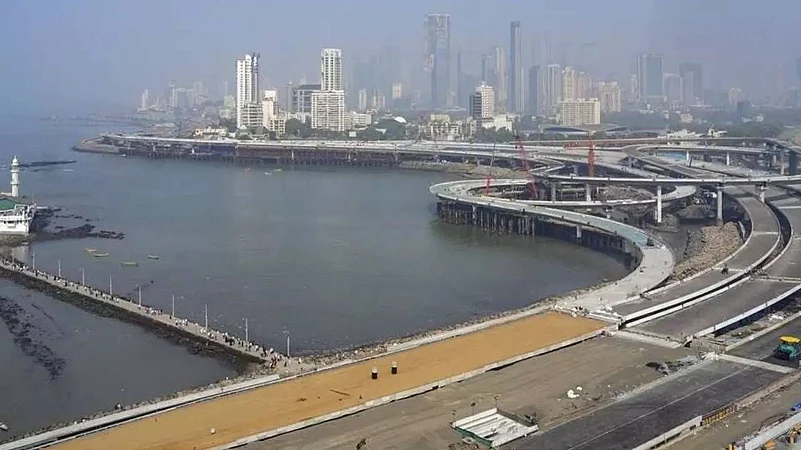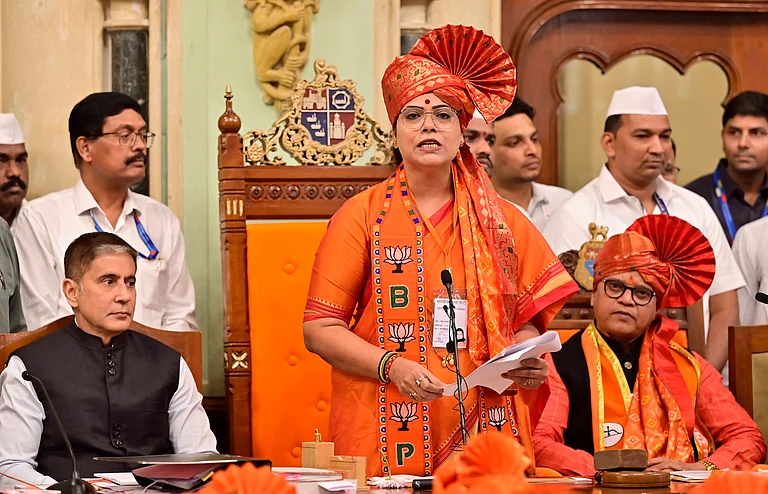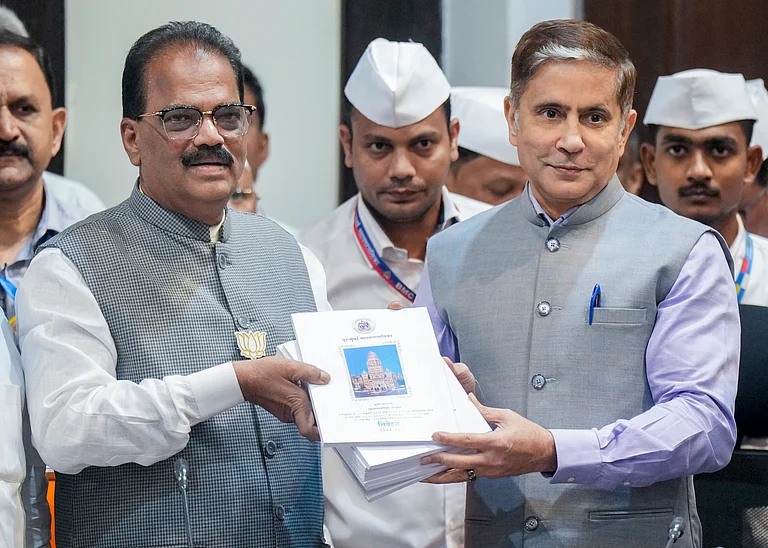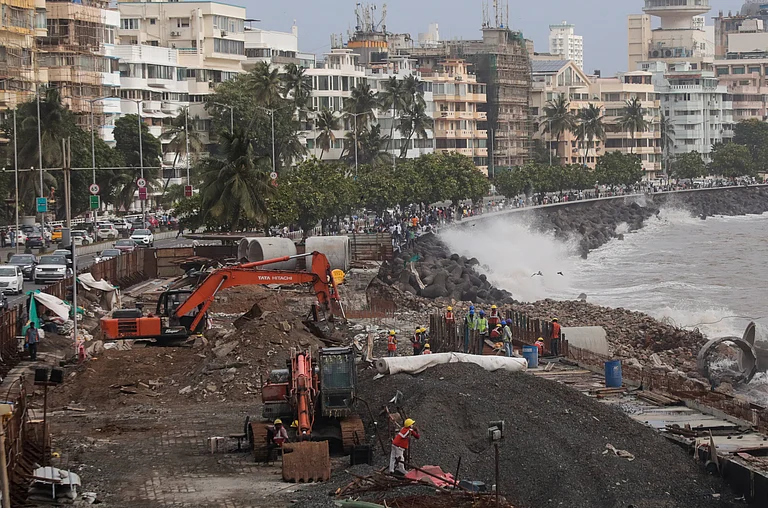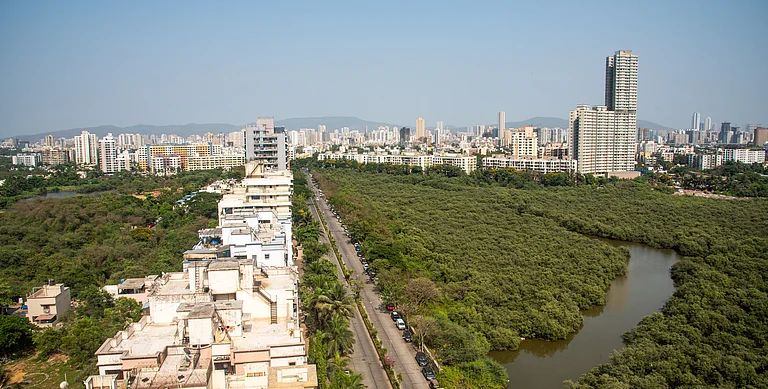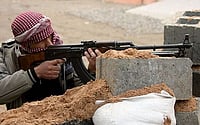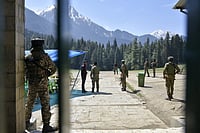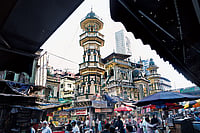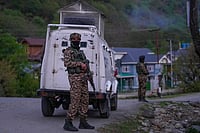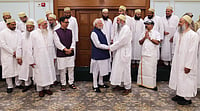Mumbai’s charming Queens Necklace coastline dotted with shimmering lights and Art Deco heritage buildings now officially stands disrupted. The Coastal Road Project, constructed on the reclaimed land in the Arabian Sea and panned by critics as an ugly eyesore with serious environmental hazards was partially inaugurated on Monday, permanently altering the city’s famed skyline.
Chief Minister Eknath Shinde alongside Deputy Chief Ministers Devendra Fadnavis and Ajit Pawar opened the Southbound stretch of the road to the public from Marine Drive to Worli.
The BJP-Sena government went ahead with the inauguration after it was postponed twice in February and May for the presence of Prime Minister Narendra Modi. A vintage car rally was organised to mark the inaugural ceremony. The road will be open for vehicles from Tuesday 8.00 am to 8.00 pm and will remain closed on the weekends to complete the construction and beautification project. CM Shinde has declared the entire road to be toll-free.
The 10.58 km stretch from Princess Street flyover to Worli end of Bandra Worli Sea Link has been built at a cost of Rs 13,983 crore and includes the country’s first undersea tunnel stretching 2.72 km. Civil works on the northbound carriageway including the tunnel, promenade, and underground car parts are expected to be complete by May. Phase 2 of the 29.20 km coastal road project will extend on the northern side of the city and provide connectivity from Bandra to Versova.
The completion of the coastal road project and the 22 km long sea bridge, Mumbai Trans Harbour Link (MTHL), inaugurated in January, are among the key achievements in the kitty of the Shinde-led BJP-Sena-NCP government, ahead of the Loksabha elections.
The coastal road project has been touted as a game-changer in providing ease of commute. The high-speed corridor will drastically reduce travel time between Marine Drive to Worli from the current 45 minutes during peak traffic to less than 10 minutes. But barring the limited decongestion, the project has faced opposition for being a strictly car-centric utility and destroying the fragile coastal environment and the livelihoods of fishing communities that depend on the healthy ecology of the coast.
“It is one of the costliest projects that has been conceptualised to benefit some 2 lakh cars that enter daily in South Mumbai,” A V Shenoy, senior transport expert with citizens group Mumbai Mobility Forum. According to the forum, the coastal road costs over 1000/km, while the cost of construction for the local railway line costs 100 crores/km, and the Metro line costs up to Rs 400 crores/km.
The coastal road bars access to all types of heavy vehicles, two-wheelers, handcarts, and pedestrians. Only private cars, taxis, and BEST buses will be allowed to ply. “It is not feasible to ply public transport as the stretch has no facilities for bus stops and passengers to get down safely.”
The Forum had made several representations to the BMC to make the coastal road commuter-friendly with space for pedestrians, which remained only on the discussion table. “Mumbai has limited land availability and high population density and there is an urgent need for cheap and effective public transport infrastructure that will benefit the masses to commute. The coastal road which is constructed at huge public expense, is a high-speed elevated road for the upwardly mobile, elites and VIPs. It has no place for people to walk,” Shenoy said.
The coastal road will provide an uninterrupted commute from the entry point at the Worli junction to the Princess Street Flyover at Marine Drive. It has only an off-ramp interchange at Breach Candy (Amarsons). Shenoy is doubtful whether the project will ease congestion as two-wheelers, buses, and heavy vehicles will continue on the existing narrow Peddar road.
Besides traffic woes, the project has been criticised for being aesthetically unpleasant and spoiling the beauty of the Marine Drive promenade which has approximately 94 Art Deco buildings listed under UNESCO World Heritage.
However, the most damning feature of the project, which has been in controversies since its inception concerns the environmental impact of the project. The Comptroller and Auditor General in its 2022 report, flagged that Brihanmumbai Municipal Corporation did not seek the Centre’s approval under the Environment Impact Assessment (EIA) rules, for the coastal road project which extends the coast up to 100 meters inside the sea. Around 111 hectares of sea land, has been reclaimed for the project.
Mumbai’s fishing community, Kolis, who have traditionally fished in the shallow waters has suffered the maximum brunt of the infrastructure projects starting from the Bandra-Worli Sea link. BMC’s assessment found that constant construction work, drilling, piling, and the release of concrete, and harmful chemicals into the seawater have disturbed the ecology and caused a grave impact on the fishing fields and the breeding grounds. “The fishing catch has declined tremendously, especially on the Girgaum and Haji Ali stretch it is completely finished,” said Vijay Worlikar, vice chairman of the National Association of Fishermen.
The Kolis are the earliest inhabitants and have lived along the coastline from the time when Mumbai was a mass of seven islands. “We do not have resources for deep water fishing. Our livelihood is dependent on fishing in the waters near the coast. We earn money from what we fish and sell and have a hand-to-mouth existence. The infrastructure of roads and bridges has hit our livelihood,” he said.
The community had raised similar concerns two decades ago during the construction of the Bandra-Worli sea link as its design impeded the navigation of fishing boats. The design was changed and the navigation span was amended from 60 meters to 120 meters, for free movement of boats.
During the inauguration ceremony, the state government mentioned that concerns of the fishing community were given special attention, and affected fisherfolks were awarded a compensation of Rs 137 crore. However, Worlikar said, “compensation was not a remedy’’ as it will be unable to rehabilitate the future generation of the kolis. “Our next generations have no future in fishing in Mumbai.”






